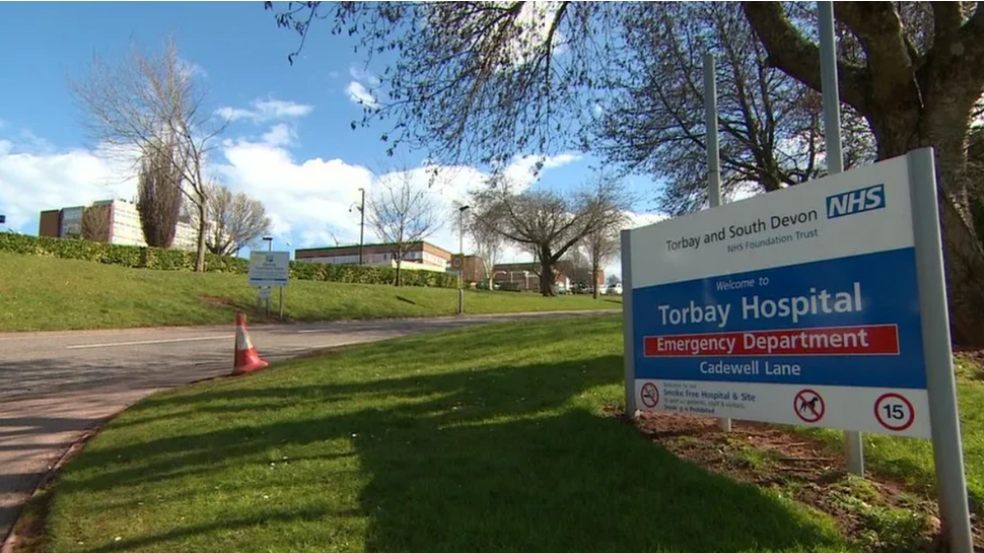Hip surgery trial boosted by robot technology
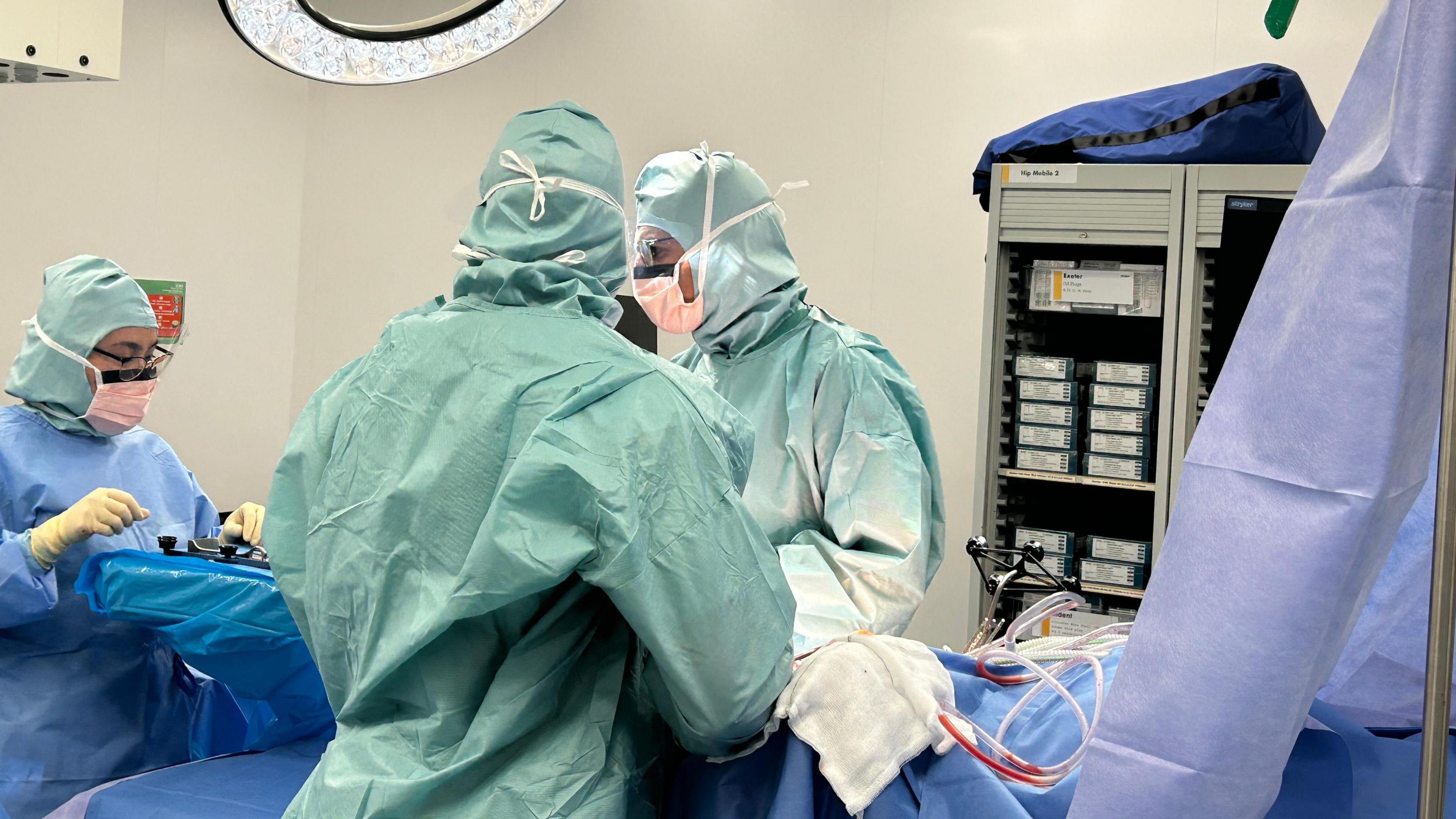
The research is the first of its kind in the world
- Published
A two year clinical trial to revolutionise hip surgery using a state-of-the-art robotic guidance system has been taking place in Devon.
The research, which is the first of its kind in the world, is being led by The Royal Devon University Healthcare NHS Foundation Trust in Exeter.
The 'hip surgical techniques to enhance rehabilitation' (HIPSTER) study aims to improve the experience of people having a total hip replacement to treat severe arthritis by cutting fewer tendons during surgery.
Lead research nurse Lizzy Gordon said the trial could "benefit a lot of people".
'Cutting fewer tendons'
The HIPSTER trial has been investigating whether cutting fewer tendons in surgery could result in a quicker recovery, improved rehabilitation and less pain for patients.
Ms Gordon said: "We know 10% of patients still have pain after one year of having a total hip replacement.
"If we can improve patient satisfaction and quicken their recovery, then it's going to benefit a lot of people if one of these techniques is shown to be better than the other."
Patients who are involved are monitored for 12 months following surgery.
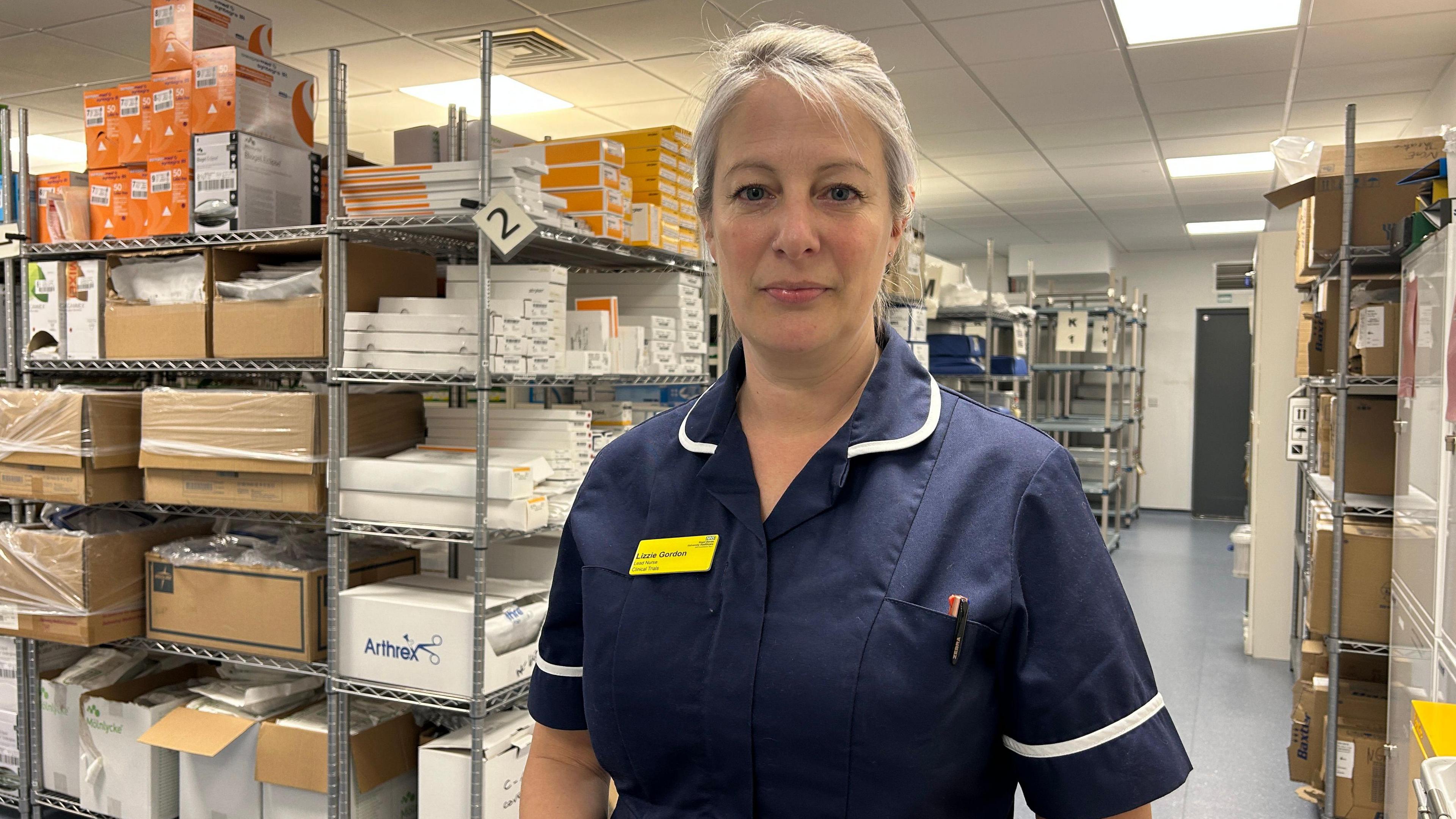
Lead research nurse Lizzy Gordon said the trial could "benefit a lot of people"
Speaking about the procedure, the study's chief investigator Al-Amin Kassam said: "Most surgeons in the country cut three tendons around the hip to perform a hip replacement.
"We are looking at ways of cutting one or two tendons to see if that makes a difference to patient outcomes and helps improve their long term outcomes after hip surgery."
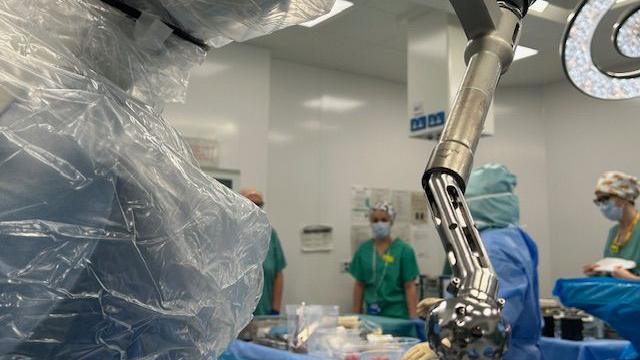
The trial began in August 2023 and will run until August 2025
If the data proved cutting less tendons helped patient recovery, the aim would be to use the technique nationally and internationally in the future, Mr Kassam added.
A total of 246 patients have been recruited to the trial so far, with a total target of 309.
The trial began in August 2023 and will end in August 2025.
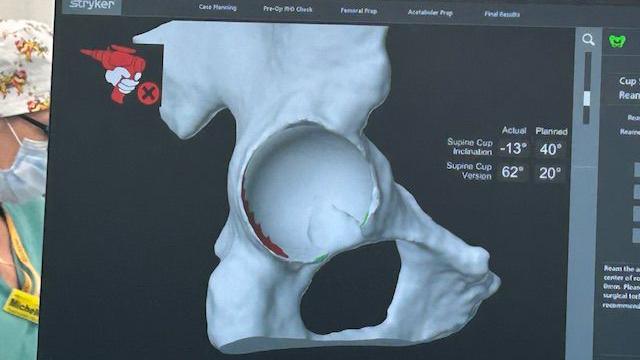
Patients who are involved are monitored for 12 months following surgery
Follow BBC Devon on X, external, Facebook, external and Instagram, external. Send your story ideas to spotlight@bbc.co.uk, external.
- Published12 November 2024
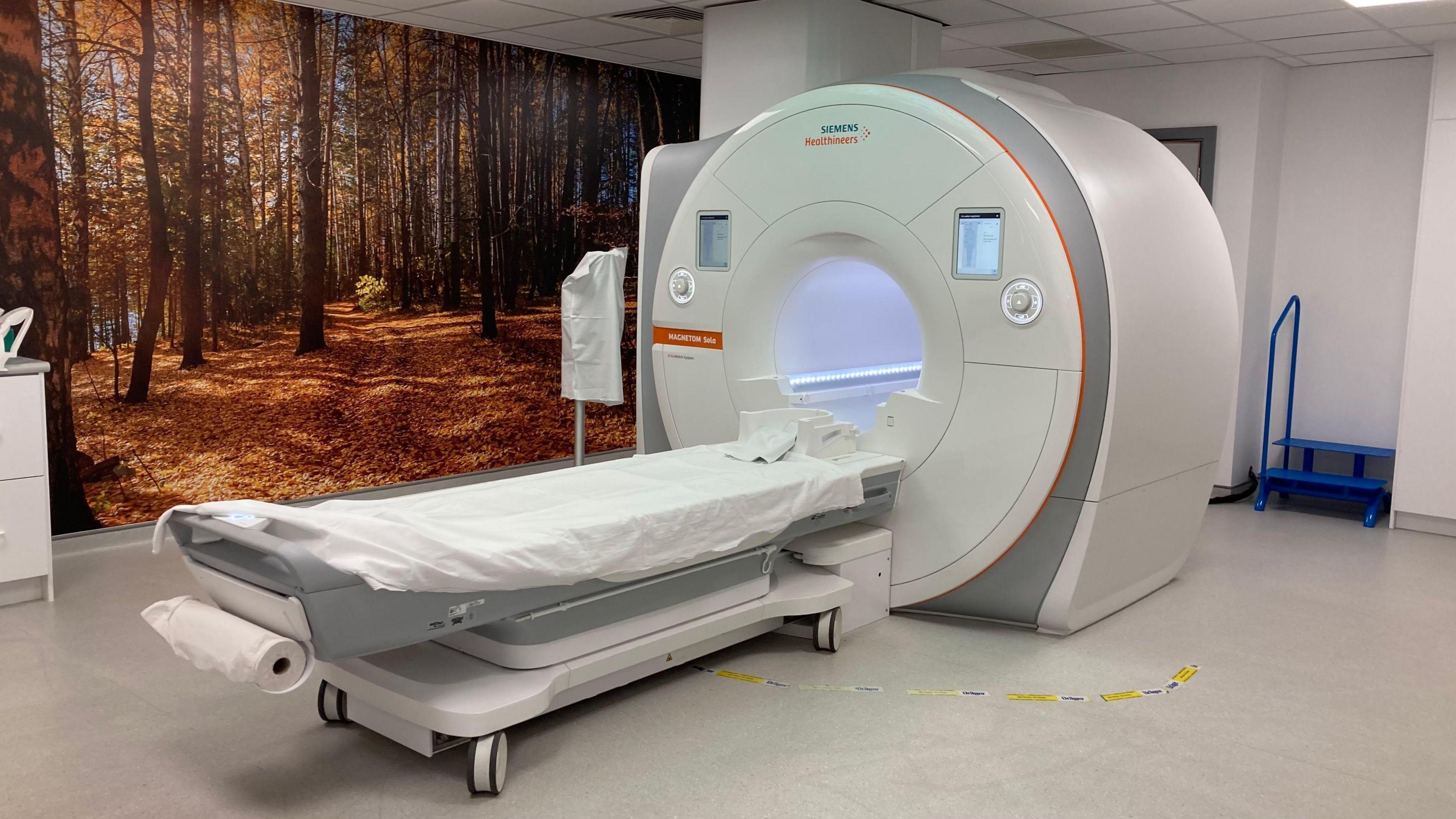
- Published7 November 2024
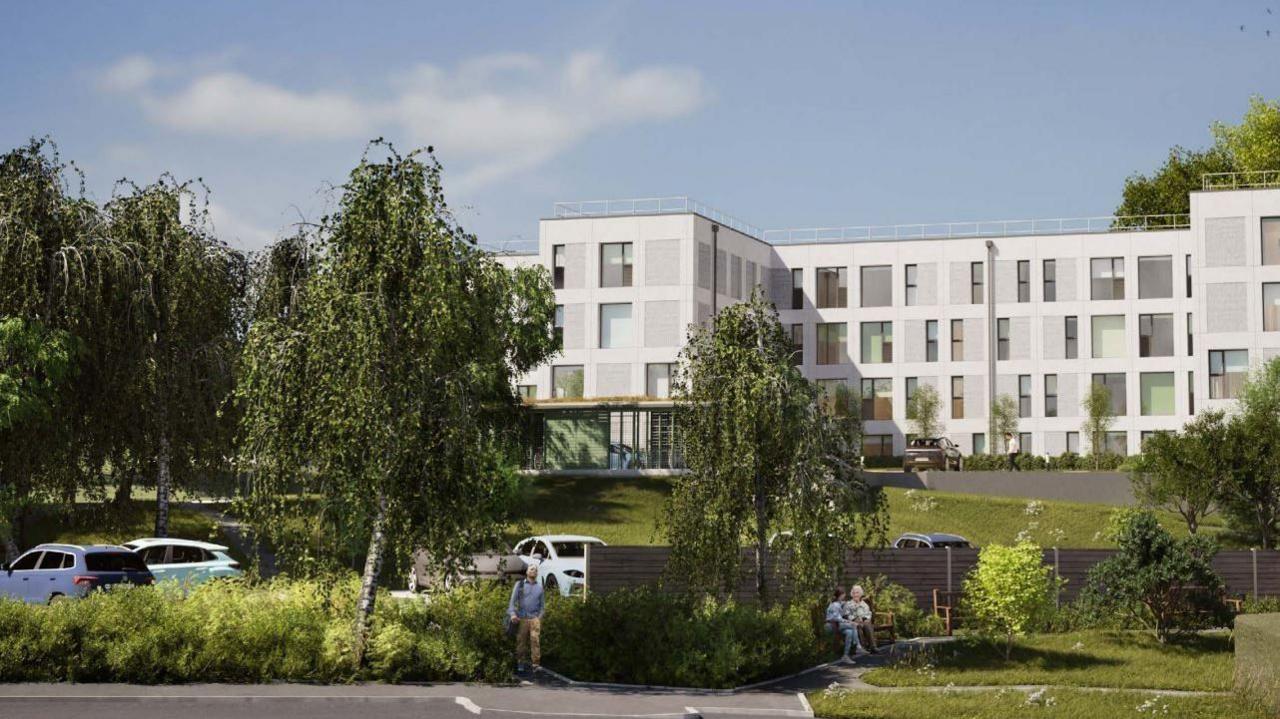
- Published24 September 2024
